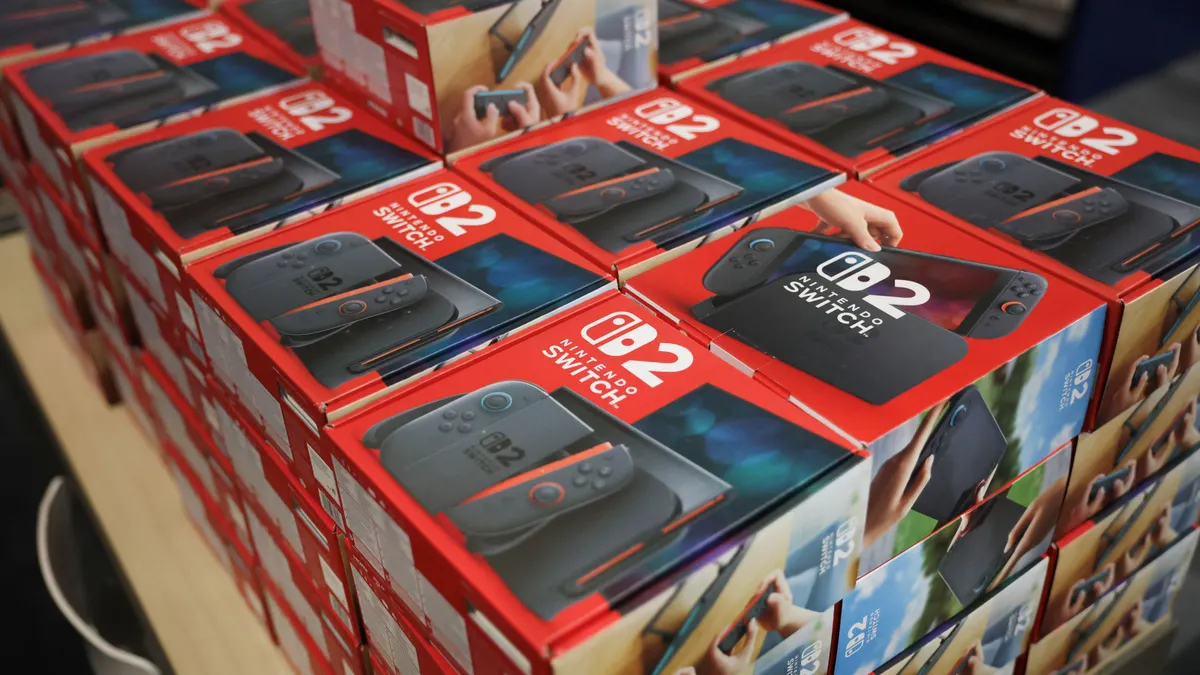Dive Brief:
- U.S. adults are concerned that tariffs will cause tech product prices to surge, according to a CNET survey released last week
- Nearly two-thirds of consumers said they recently bought or plan to buy a tech product soon to avoid higher prices or supply shortages, the survey of more than 2,400 adults found.
- Those fears may be warranted, as new reciprocal tariffs against several countries, including tech powerhouses Japan and South Korea, are set to take effect Aug. 1.
Dive Insight:
Consumers have been anxious about tariff-induced price hikes and supply shortages since the Trump administration started a trade war earlier this year. Those concerns have been exacerbated by the unpredictability of U.S. trade policy, including on-again, off-again levies against key U.S. trade partners.
Businesses should view the turmoil as an opportunity to build trust with consumers through clear and transparent messaging across all channels, said Carla Bevins, professor of business communications at Carnegie Mellon University's Tepper School of Business.
“If you are not customer-centered, it can come across as tone deaf or even opportunistic,” Bevins said.
A number of tariffs are slated to take effect Aug. 1, including a 25% tariff on goods from Japan and South Korea alongside 30% tariffs on imports from the European Union and Mexico.
However, it’s unclear when consumers will feel the full effects of the tariffs, as the pause has given retailers more time to stockpile goods.
In June, more than one-third of U.S. adults reported they had, at some point, felt pressured to purchase goods of any kind due to tariff concerns, a slight decline from March, according to the survey.
Another 17% of consumers reported purchasing items of any kind due to tariff anxiety, according to the survey.
In the tech category, U.S. adults are most concerned that tariffs will raise the prices of smartphones, appliances and laptops. Nearly 2 in 5 consumers reported purchasing or planning to purchase a smartphone, while 33% and 31% said the same for appliances and laptops, respectively.
Some consumers are turning to the secondhand market to save money on electronics, with 17% reporting that they have purchased or plan to purchase secondhand electronics, according to the survey. Gen Z is driving the trend, with 29% reporting that they have bought or plan to buy secondhand electronics, the survey found.











